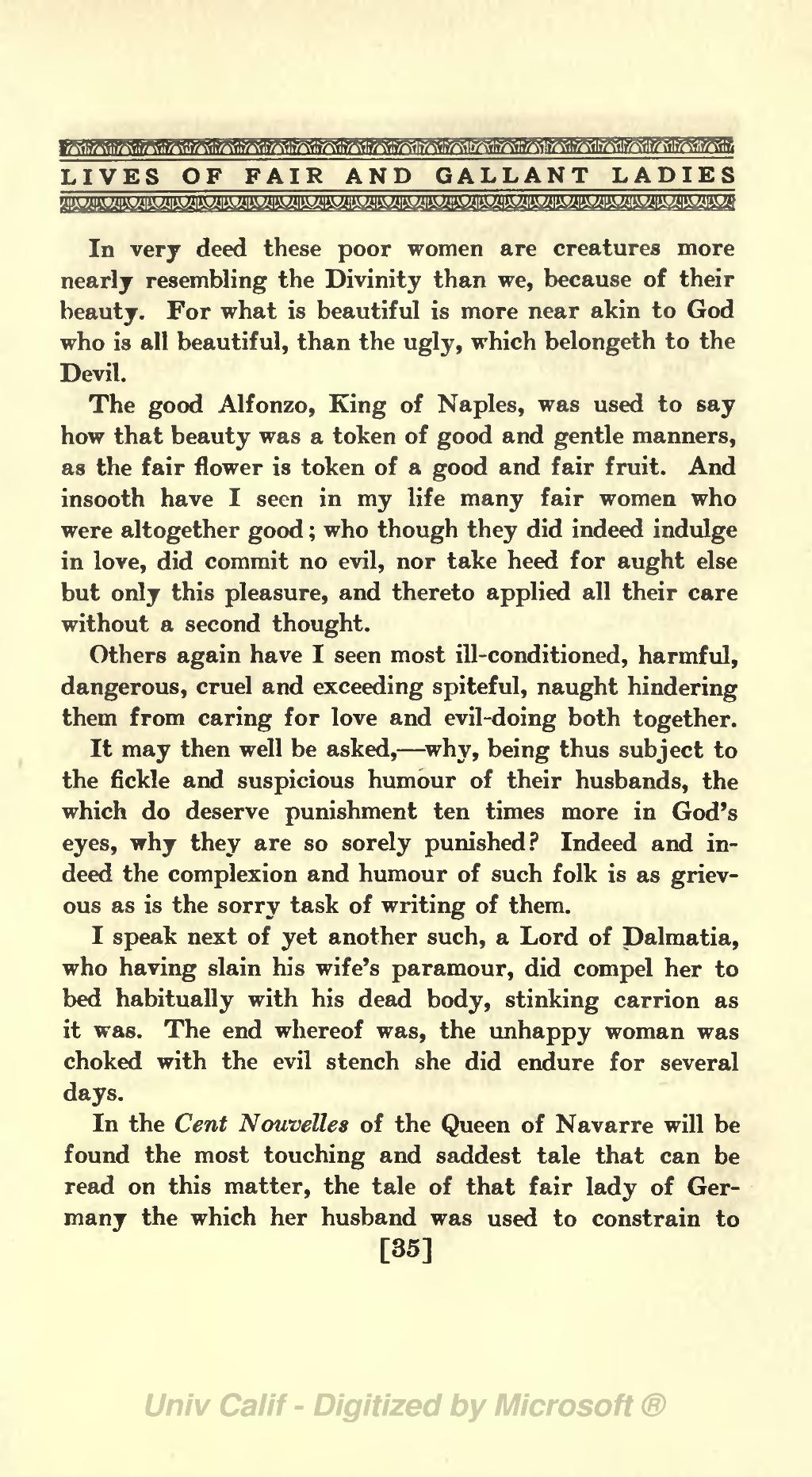In very deed these poor women are creatures more nearly resembling the Divinity than we, because of their beauty. For what is beautiful is more near akin to God who is all beautiful, than the ugly, which belongeth to the Devil.
The good Alfonzo, King of Naples, was used to say how that beauty was a token of good and gentle manners, as the fair flower is token of a good and fair fruit. And insooth have I seen in my life many fair women who were altogether good; who though they did indeed indulge in love, did commit no evil, nor take heed for aught else but only this pleasure, and thereto applied all their care without a second thought.
Others again have I seen most ill-conditioned, harmful, dangerous, cruel and exceeding spiteful, naught hindering them from caring for love and evil-doing both together.
It may then well be asked,—why, being thus subject to the fickle and suspicious humour of their husbands, the which do deserve punishment ten times more in God's eyes, why they are so sorely punished? Indeed and indeed the complexion and humour of such folk is as grievous as is the sorry task of writing of them.
I speak next of yet another such, a Lord of Dalmatia, who having slain his wife's paramour, did compel her to bed habitually with his dead body, stinking carrion as it was. The end whereof was, the unhappy woman was choked with the evil stench she did endure for several days.
In the Cent Nouvelles of the Queen of Navarre will be found the most touching and saddest tale that can be read on this matter, the tale of that fair lady of Germany the which her husband was used to constrain to
[35]
